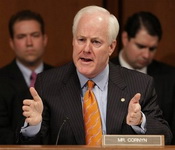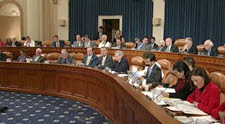The House of Representatives is expected next week to pass a bipartisan package of revisions to the Dodd-Frank Act of 2010 and send it to President Trump for his signature. The House bill (S. 2155), which passed the Senate (67-31) in March, includes significant Roundtable-supported clarifications to the Basel III High Volatility Commercial Real Estate (HVCRE) Rule – a top industry priority that will benefit CRE acquisition, development and construction (ADC) lending and promote economic growth.
 |
The House is expected to vote on S. 2155 – the Economic Growth, Regulatory Relief, and Consumer Protection Act – as early as Tuesday, May 22 – separate financial deregulation legislation championed by House Financial Services Chairman Jeb Hensarling (R-TX) is expected to soon follow. |
What it Means for CRE
The HVCRE measure contains important clarifications and reforms to the Basel III High Volatility Commercial Real Estate (HVCRE) Rule, which has created needless confusion and increased borrowing costs in the industry.
HVCRE reform has been a top policy priority of The Real Estate Roundtable and its industry coalition partners, who have submitted numerous policy comment letters to policymakers since 2015. The Roundtable's HVCRE Working Group has also played a key role in advancing these welcome reforms.
Legislation that would reform the process for reviewing foreign investment risk introduced by Senator John Cornyn (R-TX) in the Senate and Congressman Robert Pittenger (R-NC) in the House – including a purchase or lease of domestic properties in close proximity to sensitive U.S. facilities by a foreign party – will be marked up May 22 by both the Senate Banking Committee and the House Financial Services Committee.
 |
The Senate Banking Committee will mark up S. 2098 – the Foreign Investment Risk Review Modernization Act of 2017 (FIRRMA) – on Tuesday, May 22. The revised real estate provision appears on page nine of the committee’s amended legislative discussion draft . |
“The revised bill, according to drafts reviewed by The Wall Street Journal, would have the government vet domestic and overseas transactions through separate processes. The proposed legislation spells out CFIUS’s authority to vet the purchase or lease of real estate near sensitive U.S. facilities, and its right to review any deal structured to evade its jurisdiction such as transactions that use shell companies to obfuscate the would-be buyer’s ownership. Both the Senate Banking Committee and the House Financial Services Committee … now plan to mark up the bill’s text as soon as next week after reaching the compromise.” (The Wall Street Journal, May 17, Legislation to Curb Chinese Deals Moves Through Congress)
The House Ways and Means Committee this week held the first in a series of hearings on how the Tax Cuts and Jobs Act (TCJA) is affecting job creation and the economy five months after its enactment.
 |
House Ways and Means Chairman Kevin Brady (R-TX) in his opening statement offered a list of favorable economic statistics and projections that he said are attributable to the new law |
Treasury Assistant Secretary Sketches Timetable for Regulations Implementing Tax Reform
Certain provisions of the TCJA of interest to commercial real estate could be addressed in upcoming IRS guidance or in a congressional technical corrections bill.
Along with TCJA rulemaking and implementation, the legislation's impact on CRE will be a focus of discussion at The Roundtable's Annual Business Meeting and Policy Advisory Committee Meetings on June 14-15 in Washington, DC.